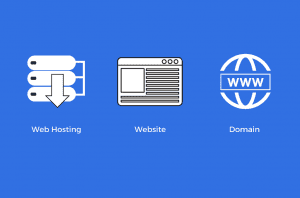
A lot of us struggle with finding good passwords for all of our various accounts that meet the minimum-security requirement and eventually end up choosing the same password for all our accounts.
This is a strict no-no. So, here are a few tips to help you keep your online passwords secure.
1. Rely on a Password Manager to Keep Track of Multiple Passwords
Do you find yourself getting overwhelmed trying to remember the different passwords to all your different accounts? Fret no more, there’s an easy quick-fix solution to this problem. All you have to do is make use of a password manager. You can easily find free versions to download on both your phone as well as your computer. Password Managers are like a big encrypted vault that stores all your vital details for you. You can enable the two-factor authentication on it, which asks for a code wither via SMS or an authenticator app before you can gain access to your data.
2. Create a password That Has Both Numbers and Letters and Make Sure it is 15 to 20 Characters Long
While your password should be easy for you to remember, it certainly should not be easy for others to guess. The best approach would be to come up with a clever password that is easy for you to remember and that is 15 to 20 characters long, consisting of both numbers as well as alphabets. The trick of it is that you don’t have to remember any of them. You can let your smart password manager do that job for you. Not only do these make it nearly impossible for cybercriminals to hack into your device, but they also make it harder for offline thieves to access the vital data stored on your phone.
3. Refrain from Making Use of the Same Password and Username for All Websites
A lot of us tend to make use of the same password and username for all our accounts with different websites. Many people use the same username and password for multiple websites, which is extremely risky because if a hacker happens to gain access to the business data of a website, they will obtain the password and username of all the other websites you have signed up with. Password duplication makes your data very vulnerable, so stop doing that.
4. Opt for a Multi-factor Authentication Mechanism When Logging into a Website
Making use of just a password is not the most secure or advisable means of verifying your authenticity to a website. A multi-factor authentication mechanism is always recommended. To this end, what you would be doing is not just entering your password to gain access but also authenticating yourself by way of an OTP or One Time Password sent to your phone or email address.
5. Never make the Mistake of Sharing Your Password with Other People
The sentiment regarding online passwords is much the same as the sentiment regarding one’s toothbrush or personal items, that is to keep it to yourself and contain the urge, no matter how compelling, to share it with others or let another person use it. It is also extremely important to change your online passwords at regular and frequent intervals so as to minimize and reduce the risk of being at the mercy of unscrupulous hackers or becoming a victim of a cyber-attack.
Though there’s no quick-fix advice on how to keep track of passwords safely, nor a definite answer to the question on how to keep passwords safe, these 5 tips will certainly lower the risk. Be smart enough to lock it all in, and alert enough to make your passwords properly stored and neatly organized – that way the chances of your phone data getting stolen will be very, very thin.
Are you worried about your cybersecurity? Well, you can breathe easily now. SPARK Services can help you with all your web, voice, and computer needs. You can rest assured that we will offer the best and most effective solutions for all your computer and network problems, by making use of the best technology available for the same and charge you reasonable competitive market rates.
Contact us now and watch your business thrive, safe from all cyber-threats.



